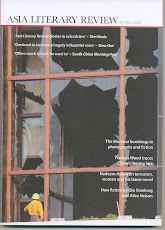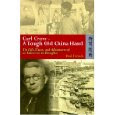
When talking about Manchester's Chinese New Year celebrations the other day I mentioned Prime Minister William Gladstone and his opinions on opium. A couple of people emailed to say they didn’t know much about Gladstone’s dislike of the opium trade; so a little more.
William Ewart Gladstone (1809–1898) was a British Liberal Party statesman and four times Prime Minister (1868–74, 1880–85, 1886 and 1892–94). He is probably best known as a champion of the Home Rule Bill (which would have established self-government in Ireland) and his rivalry with Disraeli. Left is his famous portrait by Ape (Carlo Pellegrini) for Vanity Fair in 1869 - they commented that, 'were he a worse man, he would be a better leader.'
It was 1840 wh
 en Gladstone first spoke out against the opium trade. He was broadly against the First Opium War and the belligerent opinions of the opium dealers such as Dent and, of course, Jardine and Matheson (the former left and the latter to the right). Though he was only young at the time of the Opium War his speech to the House on the subject was far in advance of his years and worth repeating:
en Gladstone first spoke out against the opium trade. He was broadly against the First Opium War and the belligerent opinions of the opium dealers such as Dent and, of course, Jardine and Matheson (the former left and the latter to the right). Though he was only young at the time of the Opium War his speech to the House on the subject was far in advance of his years and worth repeating:". . . I will ask the noble Lord a question. Does he know that the opium smuggled into China comes exclusively from British ports, that it is from Bengal and through Bombay? If that is a fact-and I defy the right honourable Gentleman to gainsay it-then we require no preventive service to put down this illegal traffic. We have only to stop the sailings of the smuggling vessels; it is a matter of certainty that if we stopped the exportation of opium from Bengal, and broke up the depôt at Lintin, and checked the cultivation of it in Malwa, and put a moral stigma upon it, that we should greatly cripple, if not exti
 nguish, the trade in it . . . The great principles of justice are involved in this matter. You will be called upon, even if you escape from condemnation on this motion, to show cause for your present intention of making war upon the Chinese. They gave us notice to abandon the contraband trade. When they found that we would not, they had the right to drive from us from their coasts on account of our obstinacy in persisting in this infamous and atrocious traffic. I am not competent to judge how long this war may last, but this I can say, that a war more unjust in its origin, a war more calculated in its progress to cover this country with permanent disgrace, I do not know, and I have not read of. The right honourable Gentleman opposite spoke last night in eloquent terms of the British flag waving in glory in Canton. We all know the animating effects produced when that flag has been unfurled on a field in battle. And how comes it to pass that the sight of that flag always raises the spirit of the Englishmen? Because it has always been associated with the cause of justice, with opposition to oppression, with respect for national rights, with honourable commercial enterprise, but now, under the auspices of the noble Lord that flag is become a pirate flag to protect an infamous traffic."
nguish, the trade in it . . . The great principles of justice are involved in this matter. You will be called upon, even if you escape from condemnation on this motion, to show cause for your present intention of making war upon the Chinese. They gave us notice to abandon the contraband trade. When they found that we would not, they had the right to drive from us from their coasts on account of our obstinacy in persisting in this infamous and atrocious traffic. I am not competent to judge how long this war may last, but this I can say, that a war more unjust in its origin, a war more calculated in its progress to cover this country with permanent disgrace, I do not know, and I have not read of. The right honourable Gentleman opposite spoke last night in eloquent terms of the British flag waving in glory in Canton. We all know the animating effects produced when that flag has been unfurled on a field in battle. And how comes it to pass that the sight of that flag always raises the spirit of the Englishmen? Because it has always been associated with the cause of justice, with opposition to oppression, with respect for national rights, with honourable commercial enterprise, but now, under the auspices of the noble Lord that flag is become a pirate flag to protect an infamous traffic."The Union Jack as a pirate flag? Strong stuff indeed. Gladstone was to keep on attacking the opium trade well into the 1890s.
As mentioned before this was all largely due to his sister being an opium addict from a young age. In 1846 Gladstone's sister Helen (1814-1880) had been restrained by the Lunacy Commission due to her behaviour thought to be caused by her opium addiction. Her behaviour remained erratic and a cause of great distress to Gladstone - especially when she did very strange things to Gladstone's mind such as moving to Germany and converting to Roman Catholicism (Gladstone was pretty anti-Catholic personally). Still, whatever the reason, Gladstone was a voice against the opium trade.








6 comments:
Mr French
I have just begun to study opium cultivation in Japanese occupied territories and stumbled upon your excellent site.
I became interested in the subject when I discovered that FDR's grandfather, Warren Delano II,shipped opium form India to China and sold opium derivatives to the military during the U.S."Civil" War.
I have a hunch that FDR wasn't too happy about the competition from the Japanese.
Can you offer further direction in that regard? I would be very grateful.
opium cultivation in Japanese occupied China was significant - will sapping as well as fund raising. Carl Crow, who I wrote a bio of saw this in Manchuria in the 1930s - there's a bit in my book but let me know and I'll try and dig out the original notes and references.
My understanding is that certainly FDR's fortune was in part dope-related. The opium money though was fairly distant and came through the Delano family connection - Warren Delano having made his fortune in opium with America's major opium concern Russells. (incidentally this clear Teddy R of any taint). However, by the 1930s Russells was gone and I doubt FDR was too bothered.
Oddly given that the tea dumped in Boston Harbour by those damned American splittists (!!) was traded for dope possibly and the FDR connection there isn't really a good book about America and dope - it's us Brits that get it in the neck for opium all the time! Deservedly but we were hardly alone
FYI- According to my neighbour , who is currently studying the original bills of laden of the liverpool china trade, the gladstone family firm was heavily involved in the opium trade.
Hi. I'm writing a paper on the Opium War. Where did you get this speech?? I would be happy if you could answer as soon as possible. Thx
Hansard
The most significantRS Gold problem is not as much what they performed; oahu is the feasible relation to your task. As a way for that you receive provides as well as progress, the individuals over you need to observe your making success, development and possible. It's actually not usually apparent as well diploma to learn facts,
Cheap Guild wars 2 Gold so that they could make using your manager to be one to complete them throughout.
Post a Comment